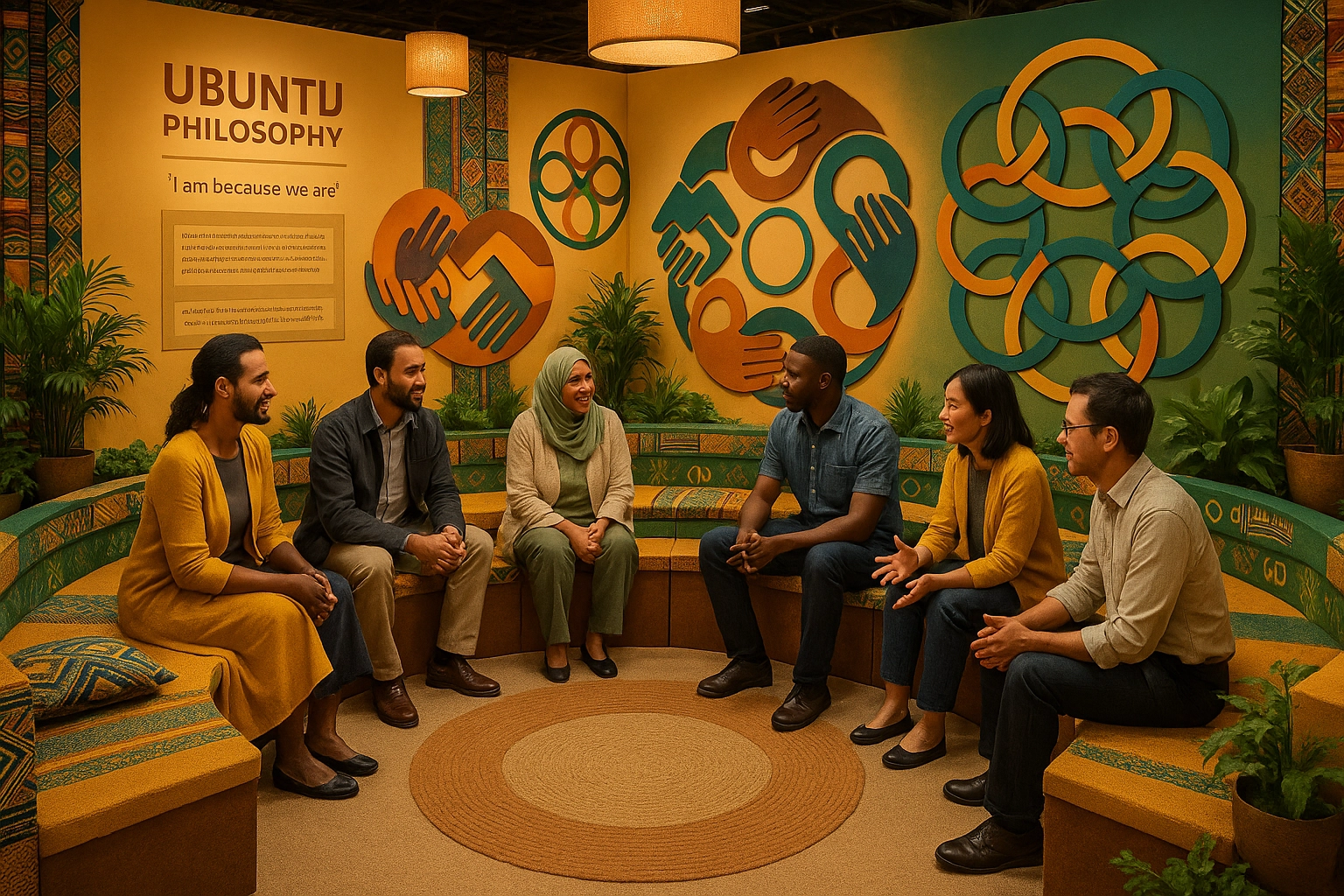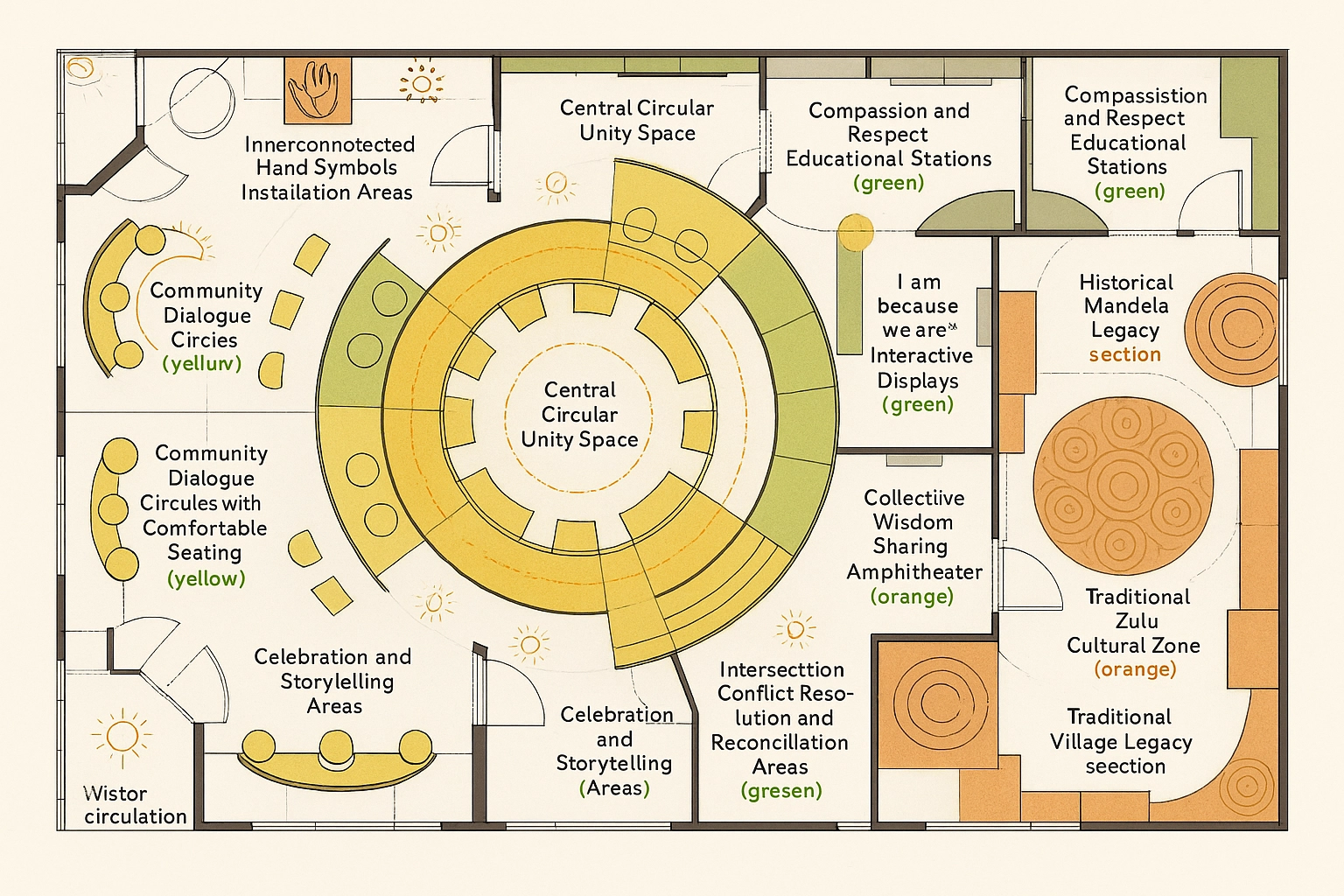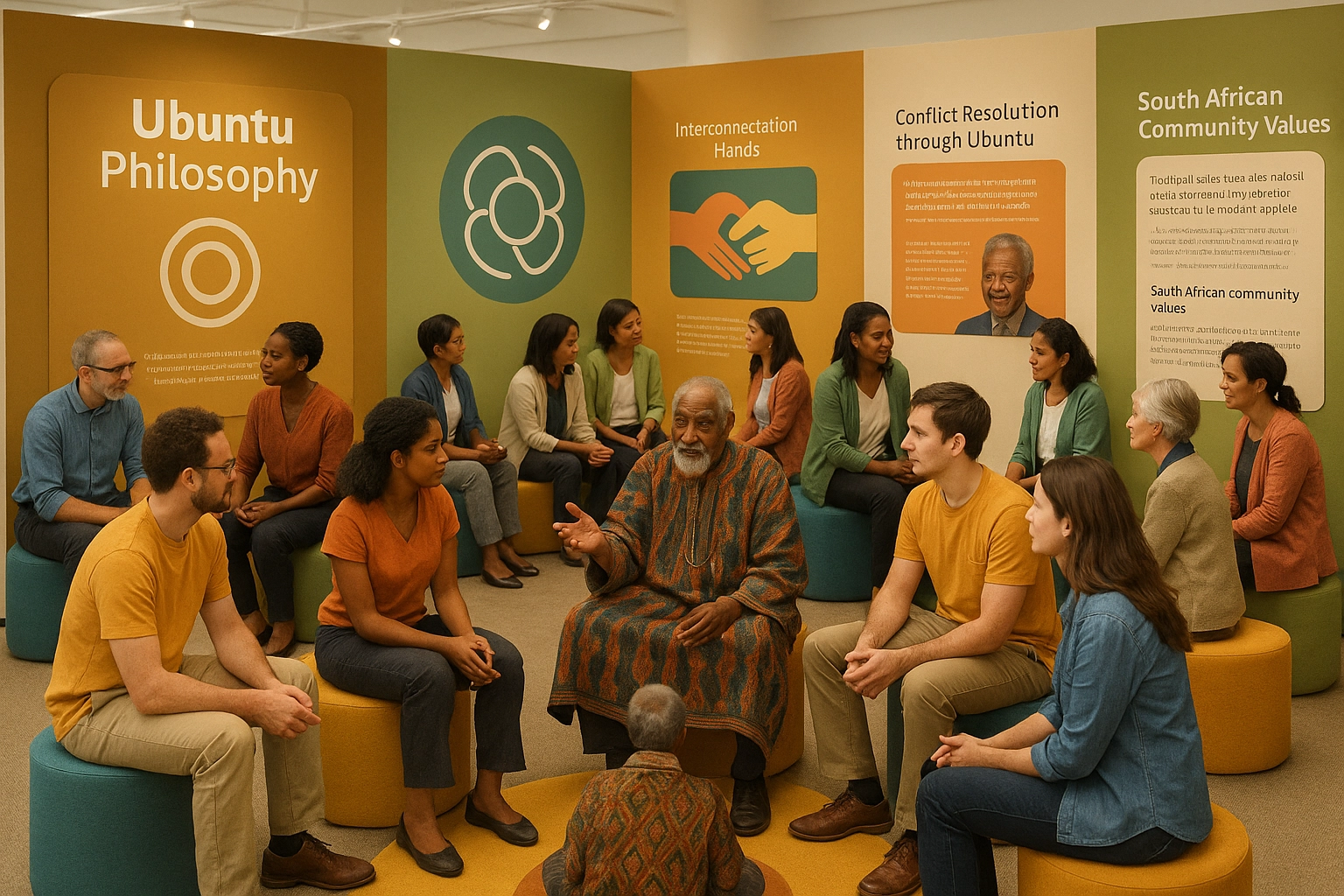Ubuntu Philosophy Exhibition
Explore the profound wisdom of Ubuntu philosophy through our immersive exhibition celebrating the interconnected nature of humanity
Exhibition Layout & Experience

Exhibition Floor Plan
Interactive layout featuring community circles, dialogue spaces, and Ubuntu learning areas

Main Exhibition Hall
Featuring community gathering circles, interactive displays, and Ubuntu storytelling spaces

Sacred Community Circle
Traditional gathering space symbolizing equality, unity, and collective wisdom
Historical Origin
Ubuntu is a profound traditional philosophy rooted in the indigenous cultures of Southern Africa, especially among the Nguni (Zulu, Xhosa, Swazi, Ndebele) and Sotho-Tswana peoples. Its origins stretch back centuries through oral traditions and communal practices that prioritize the community over the individual.
Emergence & Development
Ubuntu developed as a guiding social ethic among Bantu-speaking peoples, shaping governance, conflict resolution, and daily life. The term comes from "Umuntu ngumuntu ngabantu"—"A person is a person through other people." It gained global recognition through leaders like Nelson Mandela and Desmond Tutu.
Key Figures & Leaders
Nelson Mandela
Embodied Ubuntu in national healing and reconciliation during South Africa's transition to democracy.
Desmond Tutu
Archbishop and Nobel laureate, advocate of Ubuntu-driven justice and the "Rainbow Nation."
Traditional Leaders
Custodians of community ethics, consensus, and Ubuntu-based reconciliation practices.
Core Concepts & Beliefs
Collective Humanity
Well-being of each person is inseparable from the community.
Interconnectedness
Everyone's actions affect the group; compassion is essential.
Dignity & Equality
Every person possesses intrinsic worth and deserves respect.
Consensus & Dialogue
Decisions made through open, inclusive discussion (indaba).
Fundamental Principles
"I am because we are"
The self only exists through others and community.
Mutual Care
Supporting one another in hardship and joy.
Inclusivity
Every voice matters; all are welcomed into the community.
Compassionate Leadership
Power exercised for the good of all, not personal gain.
Sacred Symbols
Circles
Gathering in circles symbolizes equality and unity.
Interconnected Hands
Visual metaphor for support, cooperation, and belonging.
Beadwork & Patterns
Reflect interconnectedness and community diversity.
Major Rituals & Ceremonies
Indaba (Community Meeting)
Circle gatherings for collective decision-making and dialogue.
Storytelling Circles
Sharing ancestral wisdom and resolving conflict through dialogue.
Rites of Passage
Marking life transitions communally with Ubuntu principles.
Restorative Justice
Healing ceremonies focusing on accountability and community healing.
Global Influence & Cultural Impact
Global Influence
Ubuntu has inspired truth and reconciliation processes, peacebuilding, and community development worldwide. Its philosophy underpins concepts of inclusivity and respect for diversity in international discourse.
Cultural Impact
Ubuntu shaped systems of governance, family, education, and justice in Southern Africa. Its principles helped heal apartheid's wounds and foster multicultural unity in post-apartheid South Africa.
Geographical Spread
Ubuntu is practiced widely across South Africa and neighboring countries. Its influence extends globally through diaspora communities, international organizations, and academic research.
Important Books & Texts
"No Future Without Forgiveness"
by Desmond Tutu
"Conversations with Myself"
by Nelson Mandela
Oral Tradition
Proverbs, folktales, and community stories
Sacred Spaces & Structures
Village Meeting Circles (Indaba)
Sites of communal governance and ceremony.
Community Centers
Places for shared meals, dialogue, and conflict resolution.
Unity Monuments
Ubuntu-themed public art installations across South Africa.
Rainbow Nation Sites
Locations celebrating diversity and Ubuntu values.
Memorable Quote
"Umuntu ngumuntu ngabantu."— Traditional Ubuntu Saying: "A person is a person through other people."